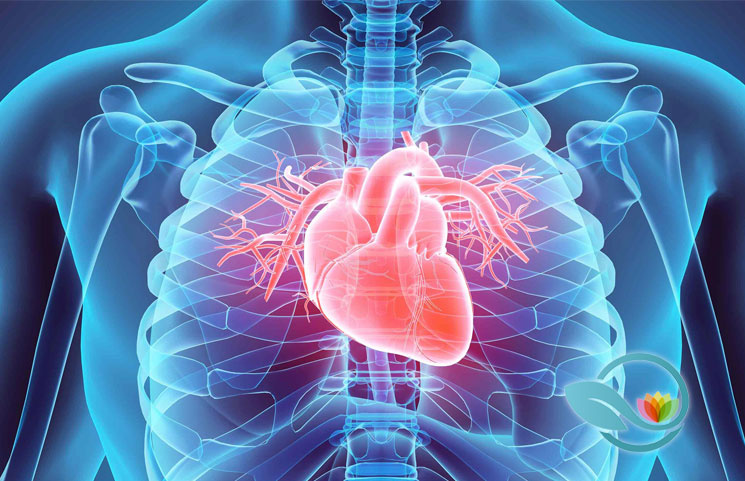Published
7 years agoon

Cardiovascular disease is the number one threat to health in America. According to the CDC, heart disease kills nearly 650,000 people every year in the US. This number is more than deaths related to cancer, Alzheimer’s, diabetes and even car accidents. The primary cause of heart disease is arterial plaque which are deposits of fat and calcium that clog arteries leading to angina, heart attack, and stroke. In order to prevent these conditions, it is important to prevent or reduce the amount of arterial plaque in our bodies.
There are various pharmaceutical drugs that have been designed to treat these conditions as there are so many people affected, but there are also alternative medicines that can be beneficial. As humans, we lack the ability to produce Vitamin C which means that we must acquire Vitamin C through diet and nutrition. If we do not provide our bodies with a sufficient amount of Vitamin C, it can be problematic to our health – in particular, our cardiovascular health. Dr. Linus Pauling, a Nobel Prize-winning scientist and Dr. Mathias Ruth maintain that many heart conditions are in fact caused by Vitamin C deficiency.
Lack of Vitamin C can cause arteries to become brittle and susceptible to cracks and can also increase cholesterol levels. Specifically, lipoprotein A Lp(a), a type of LDL cholesterol is increased. Lp(a) is the main contributor to arterial plaque as it has adhesive qualities. Attention was first given to this concern in 1989 when research on heart attack victims determined that arterial plaque in the clogged aortas contained only Lp(a) cholesterol. When arteries experience cracks, the body attempts to repair the area by sending even more cholesterol which begins to form its own deposits further constricting the area. This reduces oxygen flow and causes heart attacks and strokes.
In order to prevent and treat heart disease, the Pauling Therapy suggests taking high doses of Vitamin C as well as lysine, an amino acid. This treatment can strengthen arteries and prevent cracks and fissures. The lysine also prevents Lp(a) from sticking to arteries. Even further, Dr. Rath suggests adding proline, another amino acid, to the treatment. Proline protects the arteries by further preventing Lp(a) from sticking and in turn, promoting greater blood circulation. If the appropriate doses are followed, this therapy can significantly reduce existing arterial plaque and prevent future deposits from forming. In turn, cholesterol is lowered, the heart becomes stronger, immunity is increased, and overall health is improved.
Although heart disease is a major threat, fairly simple lifestyle and dietary changes can help combat the issue. Dr. Pauling suggests those at-risk to take at least 5g of Vitamin C and 3g of lysine every day. To address pre-existing arterial plaque, he recommends between 6 and 18 g of Vitamin C in divided doses and between 2 and 6 g of lysine. To further enhance this treatment, 800 IU of Vitamin E can be added which helps makes blood less sticky and between 100 and 300 mg of coenzyme Q10 every day which helps the heart pump blood more efficiently. It is particularly important to take CoQ10 if one is already taking cholesterol medications as they can deplete the body of this important nutrient.
Other nutrients that can help improve heart function are carnitine, taurine and arginine amino acids and Vitamin K which has antioxidant properties that can help reduce arterial plaque deposits. Various leafy greens, such as kale, spinach, or swiss chard, are good sources of Vitamin K. As with any treatment, it is important to consult a medical professional beforehand and those taking anticoagulant medication could be affected by an increase of Vitamin K in their bodies. Supplementary DHEA, a hormone which already exists in the body, is also beneficial as it not only prevents the buildup of arterial plaque, but also reduces inflammation in the body and can decrease dangerous visceral fat that can be found around the abdomen. Pauling Therapy should be done in consultation with your doctor as they can monitor your progress and can suggest a possible reduction in your current heart medication accordingly.
To support the Pauling Therapy, trans fats and refined sugar should be reduced or completely eliminated from your diet. A balance of exercise and drinking lots of water in also important. If you would really like to ramp up your diet, try a heart-conscious, organic diet that contains plenty of omega- 3 oils. The Pauling Therapy could significantly reduce our reliance on pharmaceutical drugs. It is cost-effective and doesn’t require a prescription which makes it accessible to many. It could also help to reduce the amount of heart-related surgeries that occur each year at astronomical rates. Sure, the hospitals and pharmaceutical companies won’t be happy, but your heart and arteries will be.










Disclaimer: Please understand that any news, guides or reviews found here are not a worthy substitute for medical advice. It is extremely wise to consult with a licensed healthcare professional or physician before adding any new health product or program to your routine. No supplements or services here are intended to diagnose, cure or prevent any disease.
Disclosure: Links located within this website may be affiliate placements where referral rewards will be generated if you make a purchase. This adds no additional cost to you and does not change the outcome of the research or review, but goes back into site upkeep and team sustainability.

